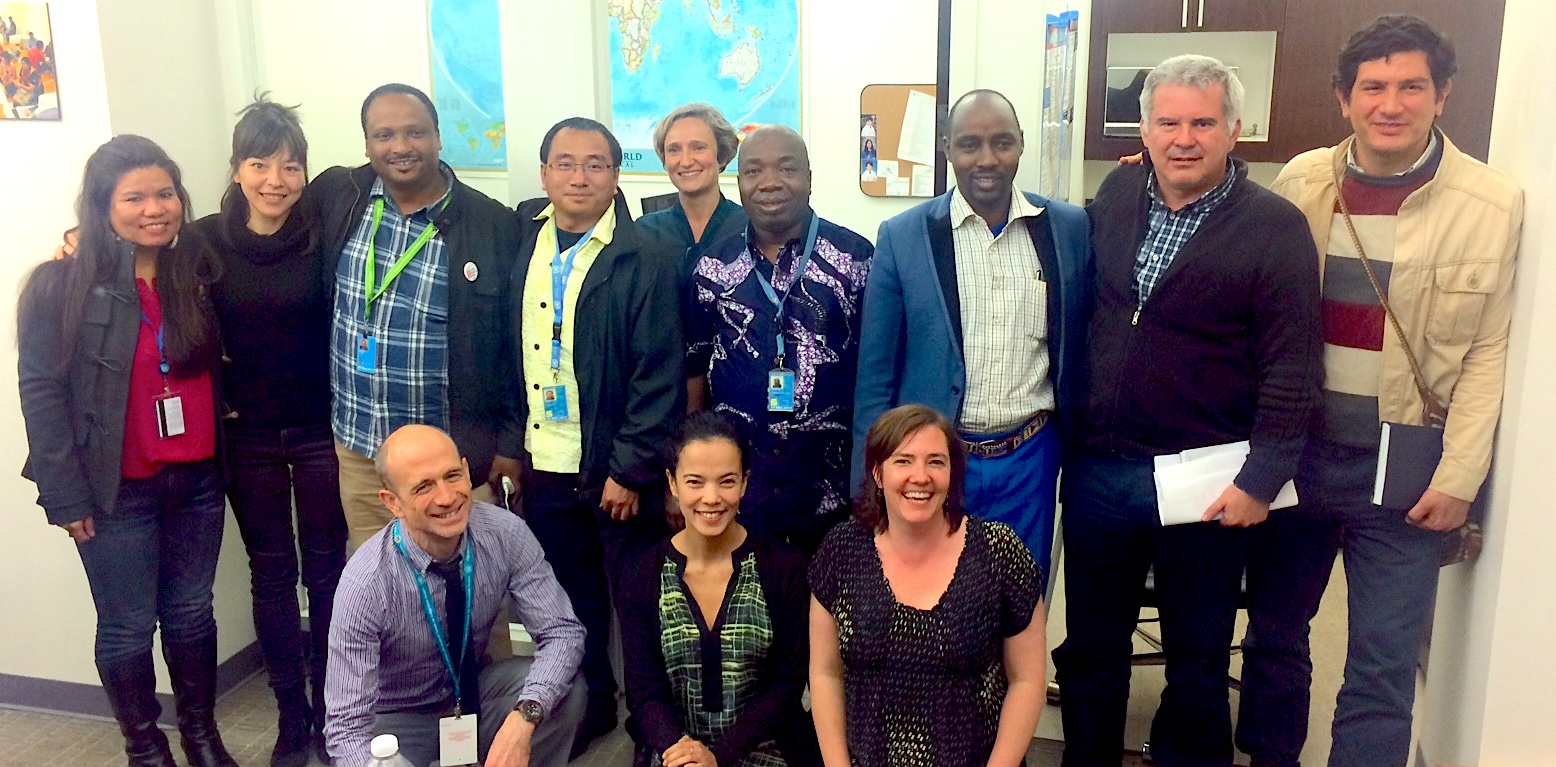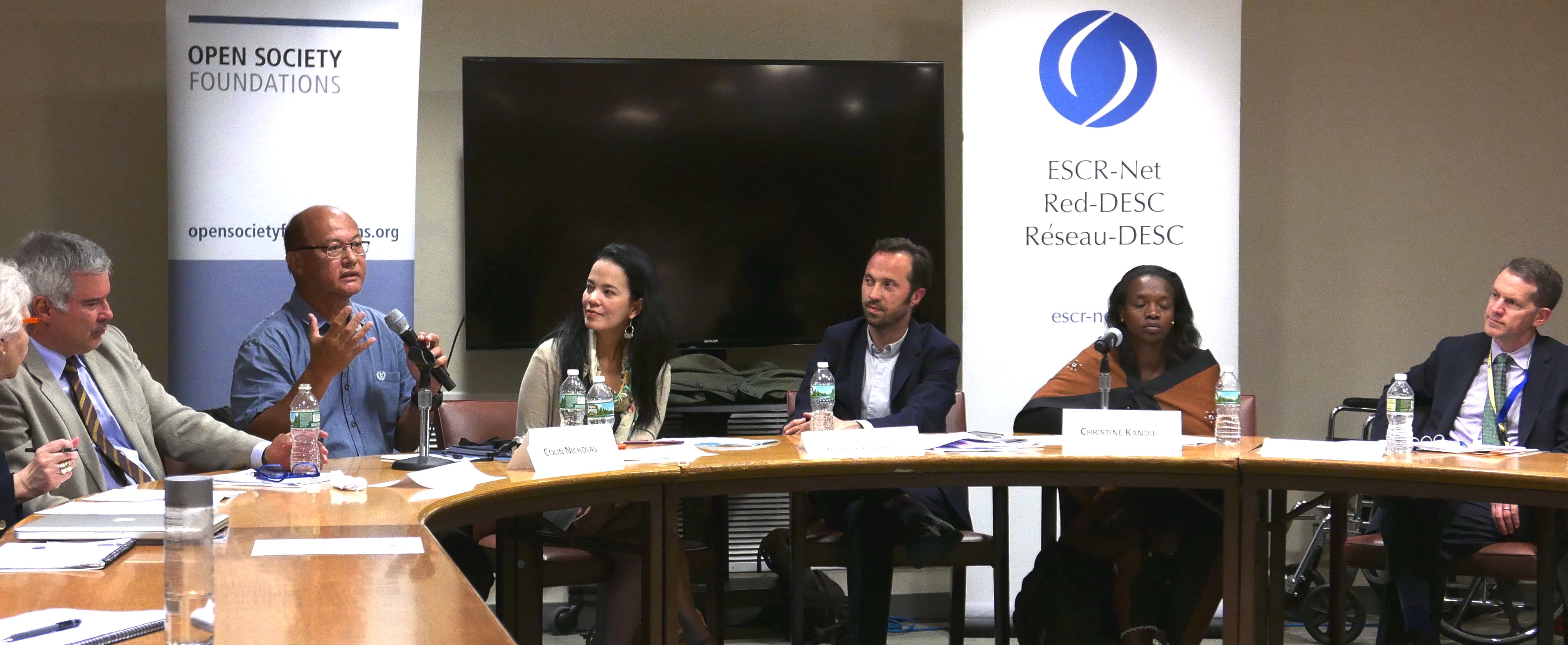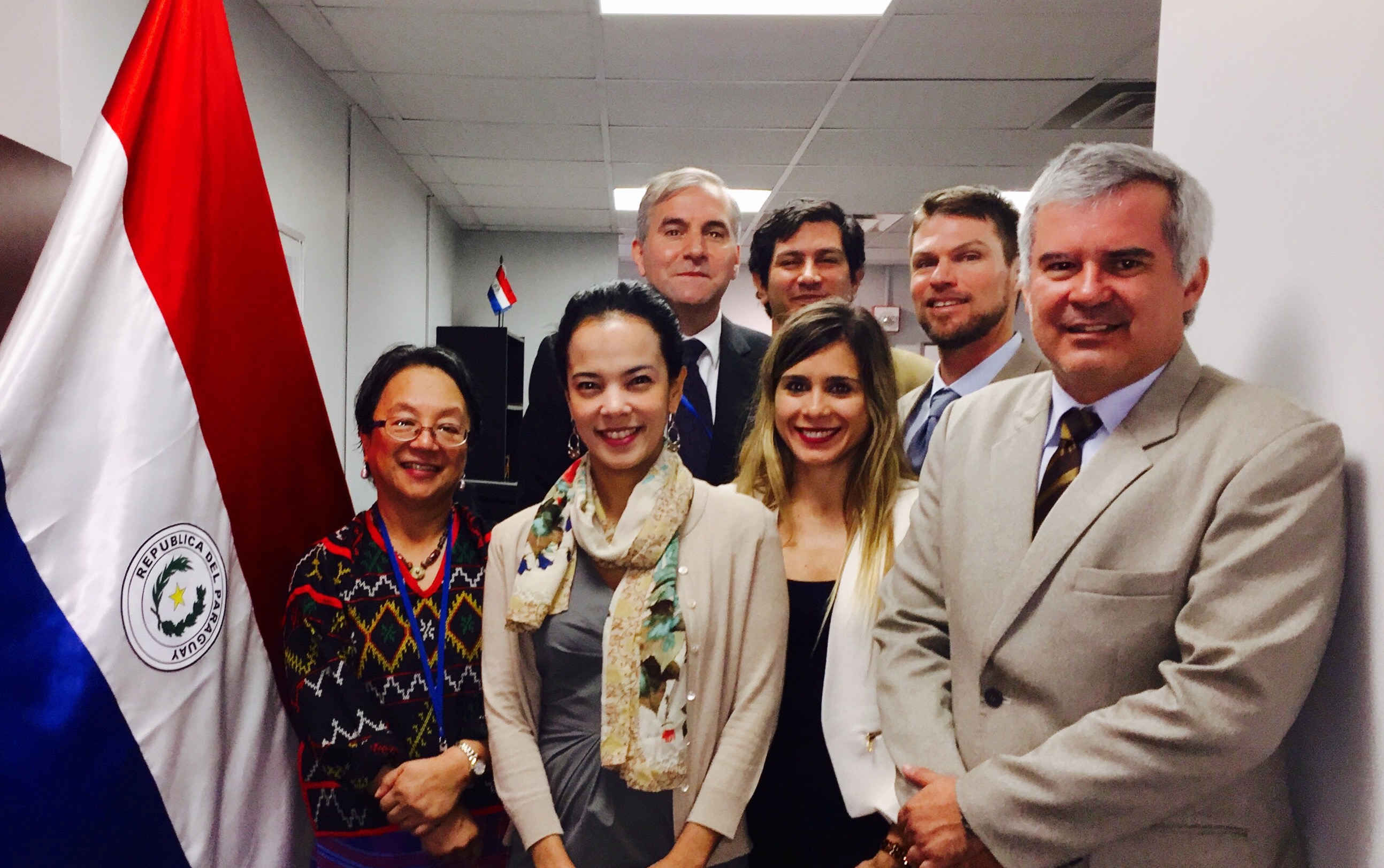Indigenous leaders and rights advocates gather in New York
Several ESCR-Net members attended the United Nations Permanent Forum on Indigenous Issues (UNPFII) for its sixteenth session in New York City between 24 April and 5 May. During that time, members came together several times to share experiences about issues of common concern.
On Wednesday, 26 April, ESCR-Net members gathered at the Network’s Secretariat to reflect on the current status of land in the international human rights framework and to offer their views on issues that will be addressed in the development of future human rights instruments. That conversation included representatives from Amnesty International, the Asian Indigenous Peoples Pact (Asian region), Minority Rights Group International, the Movement for the Survival of the Ogoni People (MOSOP, Nigeria), Narasha Community Group (Kenya), Ogiek Peoples Development Program (OPDP, Kenya), and Tierraviva a los Pueblos Indígenas del Chaco (Paraguay).

In the conversation, members recognized that land has different meaning for different groups. They stressed the particular significance that land has for the ability of indigenous peoples to realize their human rights, while recognizing that many other groups also face serious threats based on a denial of their rights relating to lands. Among the recommendations offered, members urged human rights experts to recognize the collective nature of the way that many indigenous communities utilize and manage their lands, and urged them to challenge the priority on land use that conventionally has centered on profit-seeking activities.
In conjunction with the Open Society Justice Initiative (OSJI) and Minority Rights Group International (MRG), ESCR-Net sponsored a side event titled The Struggle for Historic Land Rights,which took place on April 27th at the UN headquarters. The event featured presentations by Jeremie Gilbert, author of the book The Impacts of Strategic Litigation on Indigenous Peoples’ Land Rights and commentary by Oscar Ayala, representative of Tierraviva a los Indígenas del Chaco (Paraguay), Christine Kandie of the Endorois Welfare Council (Kenya) and Colin Nicholas of the Center for Organg Asli Concerns (Malaysia). Panelists discussed main challenges and achievements regarding the struggle for implementation of land rights decisions issued by domestic and regional courts. The book was also launched at a separate event held later that day at the Open Society Foundations (OSF) in a panel featuring representatives of ESCR-Net members Lucy Claridge of Minority Rights Group International and Rodrigo Villagra of Tierraviva a los Indígenas del Chaco, as well as James Goldstone, Executive Director of the Open Society Justice Initiative.

On Friday, 28 April, ESCR-Net members Kenyan Human Rights Commission, Hakijamii, MOSOP, MRG, Narasha Community Group, and Tierraviva, among other civil society organizations and social movements including the Endorois Welfare Council, joined side meetings at OSF to discuss the implementation of land rights’ decisions, with a focus on strategies to push governments to move forward with implementation and to secure communities’ unity. Connections between land rights, equality data and access to information were explored as tools to promote more successful litigation strategies.
The UNPFII also offered a platform for other meetings, such as a meeting with ESCR-Net member Tierraviva, the main lawyers in the Enxet community cases in Paraguay (Xamok Kasek, Sawhoyamaxa and Yakye Axa), the UN Special Rapporteur for Indigenous Peoples Victoria Tauli-Corpuz, and ESCR-Net Secretariat with the Permanent Representative of Paraguay to the UN Julio Arriola, to discuss next steps in the implementation of the land rights’ cases decided by the Inter-American Court in 2005, 2006 and 2010.

Participants in the meeting with the Permanent Mission of Paraguay to the United Nations.
